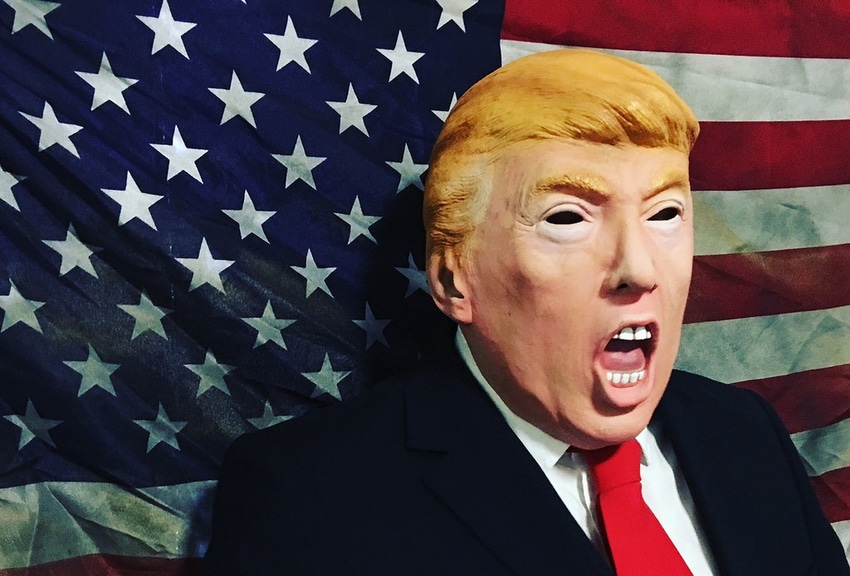The US Government is on the Huawei offensive once again, throwing another warning to the UK and suggesting the industry should open-source 5G technology to counter the threat.
December 24, 2019

The US Government is on the Huawei offensive once again, throwing another warning to the UK and suggesting the industry should open-source 5G technology to counter the threat.
The security argument is one which the US feels might hit home, despite European counterparts erring on the side of evidence. It seems quite remarkable to us that the US Government feels by saying the same thing, only a bit louder each time, that there might be success, though we do not have the political savvy which flows freely through the halls of the White House.
“They are just going to steal wholesale state secrets, whether they are the UK’s nuclear secrets or secrets from MI6 or MI5,” Robert O’Brien, US National Security Adviser, told the Financial Times.
The US does have some leverage over the UK, this is an economy on the other side of a very lucrative trade deal after all, but it doesn’t seem to address the basic demands of the European Governments. Time and time again, European administrations have said they will take an evidence-based approach, and while some sceptics may call this political rhetoric, the fact Huawei is yet to be banned suggests there is some truth to the claim.
This approach to the Huawei-conundrum seems to be a lot more personal however, seemingly targeting the fears of a delicately balanced electorate to force the hand of popularity-craving public figures.
“If you get all the information on a person and then you get their genome, and you marry those two things up, and you have an authoritarian state wielding that information, that is an incredible amount of power,” said O’Brien. “Why the UK would sign up for such a programme is astonishing.
“German citizens just are not ready to sign up for their state to become a vassal of Beijing, and the first step on that path is allowing Chinese 5G into Germany.”
Huawei does seem to be winning the backing of the European bloc. There are of course dependency issues which will perhaps be more of a defining factor than anything else, but the Chinese vendor is doing something very different to the US propagandists; it is working with the nations to come to a solution.
The UK, Germany, Spain, Italy and countless other nations will find it very difficult to ban Huawei. Competition is needed to drive down the cost of deployment, due to the scale of the telcos, while the rip-and-replace of 4G technologies would be an incredible cost. The US has neither of these problems; there are effectively only four MNOs serving 300 million people and Huawei does not have any equipment in the network to cause backwards compatibility concerns.
But while the US is simply shouting across the Atlantic, commanding those it sees as inferior nations to its will, Huawei is working with the telcos to create a solution. In March, it opened a cybersecurity centre in Brussels to allow customers to validate security credentials and this month it christened the 5G Innovation and Experience Centre in London.
This is a firm which understands the concerns over its products and has boots on the ground to manufacture new products which are more suitable for the world of tomorrow. It is proactively managing the concerns instead of simply huffing and puffing from the other side of the world. Is there any wonder why the US is being largely ignored?
Interestingly enough, this is not the only proclamation which has made its way out of the White House and across the Atlantic.
Speaking with the freedoms attributed to those with little thought to the concept of irony, the Pentagon’s Lisa Porter is proposing 5G technologies should be open-sourced.
“The beauty of our country is that we allow that marketplace to decide the winners,” said Porter. “The market will decide. If someone is dragging their feet, that’s up to them to decide, but then the market will decide from there who wins.”
There was of course no mention of the isolationist or protectionist policies which have been rolled-out by the White House over the last few years.
In open-sourcing 5G technologies, a tsunami of technology companies could get in on the act. This of course would be incredibly beneficial for the telcos who’s procurement processes could potentially be buoyed by a race to the bottom as numerous off-the-shelf alternatives appear on the market.
This has been deemed a means to counter the threat of Huawei, ripping away the valuable advantage of years’ worth of R&D. But at the same time, it would destroy the proposition for European vendors, Nokia and Ericsson for example, as well as US technology powerhouses, Cisco and Oracle.
Perhaps the Christmas break is coming at an excellent time. There will be several Huawei announcements made in the New Year and plenty of opportunity for political ping pong. We suspect January will be a very busy month for Huawei’s PR team.
About the Author(s)
You May Also Like








.png?width=300&auto=webp&quality=80&disable=upscale)


_1.jpg?width=300&auto=webp&quality=80&disable=upscale)


.png?width=800&auto=webp&quality=80&disable=upscale)